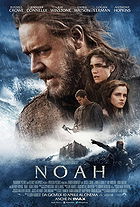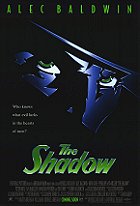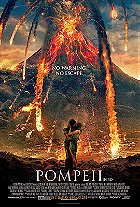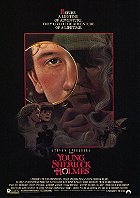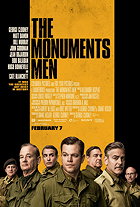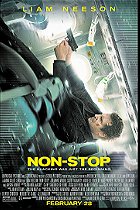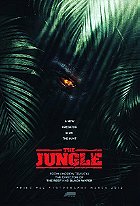From the very early stages of 1981's The Great Muppet Caper, it's clear that the picture is in good hands. Opening with a bang, this second feature-length Muppet endeavour begins with a hilarious meta conversation about the opening titles, followed by some uproarious Muppet-style antics and a joyous musical number. Fortunately, this high standard is retained throughout, as the sense of fun and wonderment seldom slows down across its 95-minute duration. The Great Muppet Caper is actually the only Muppet feature to be directed by the late Jim Henson, and it remains a wonderful cinematic relic of the Henson years. While not quite as good as 1979's The Muppet Movie, it's a worthy successor, full of enough inspired moments of hilarity to please hardcore fans and provide a fun time for the uninitiated.

In this story, Kermit the Frog (Henson) and Fozzie Bear (Frank Oz) are "identical" twin brothers who work as newspaper reporters for the Daily Chronicle with Gonzo the Great (Dave Goelz), but they're almost fired when they miss an enormous scoop. To redeem themselves, the trio travels to London to investigate the theft of several precious jewels from wealthy fashion designer Lady Holiday (Diana Rigg). Low on cash, they're forced to stay at the dilapidated Happiness Hotel which is also home to many other Muppet characters. During their investigation, Kermit also meets Miss Piggy (Oz), Lady Holiday's new secretary who manages to convince Kermit that she's actually Lady Holiday.
As with its forerunner, The Great Muppet Caper gets plenty of mileage out of meta jokes, with the Muppets all firmly aware that they're in a motion picture. For instance, Lady Holiday at one stage gives Miss Piggy the movie's entire backstory, justifying herself by saying that the plot exposition needs to be put somewhere. Later, Sesame Street's Oscar the Grouch shows up for what he himself describes as "a very brief cameo." And this is to say nothing of the barrage of amusing one-liners and set-pieces scattered throughout the movie, making this an effortlessly amusing sit for kids and adults alike. However, the movie is not as strong during its final third - Henson struggles to maintain the furious momentum of the first two acts, and there are fewer laughs. Still, the madness is often enjoyable, and though it meanders a little bit, the movie is never a drag.

No Muppet feature is complete without musical numbers, and The Great Muppet Caper fulfils this requirement with confidence. The film is predominantly a homage to old-school screwball comedies and detective capers from the '30s and '40s, but there are also big musical numbers in the vein of Busby Berkeley. For instance, there's a magnificent sequence in which Miss Piggy swims in sync with other elaborately costumed girls while Charles Grodin (who's dubbed in an obvious, hilarious way) croons in a direct parody of Berkeley's movies. There are other wonderful songs as well, and it's hard to wipe the smile off your face during sequences involving the whole Muppet gang. The sense of joy rarely lets up.
Celebrity cameos are another staple of this franchise, and The Great Muppet Caper has a few nice surprises up its sleeve. Former James Bond girl Diana Rigg is a joy as Lady Holiday, while the perpetually brilliant John Cleese pops in for an amusing cameo, starring alongside Joan Sanderson who also appeared with Cleese in an episode of Fawlty Towers. However, the movie is not packed to the gills with cameos like most Muppet productions, and more guest stars would've amplified the movie's sense of fun. On a more positive note, the Muppet performers are as good as ever, and it's always nice to look back on the bygone era of the infinitely talented Henson and Oz.

Although The Great Muppet Caper suffers from uneven pacing and a lack of heart, it's still a great entry to the Muppet canon. It's bigger and grander than its predecessor, and at times feels like a James Bond-esque espionage movie, albeit one that also finds time for some slapstick comedy and a few Busby Berkeley-style musical numbers. It's essential viewing for Muppet fans, while casual movie-goers will no doubt be enraptured by the colourful visuals and the healthy sense of humour.
7.7/10
 Login
Login
 Home
Home 183 Lists
183 Lists 1674 Reviews
1674 Reviews Collections
Collections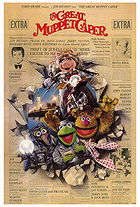
 0 comments,
0 comments, 